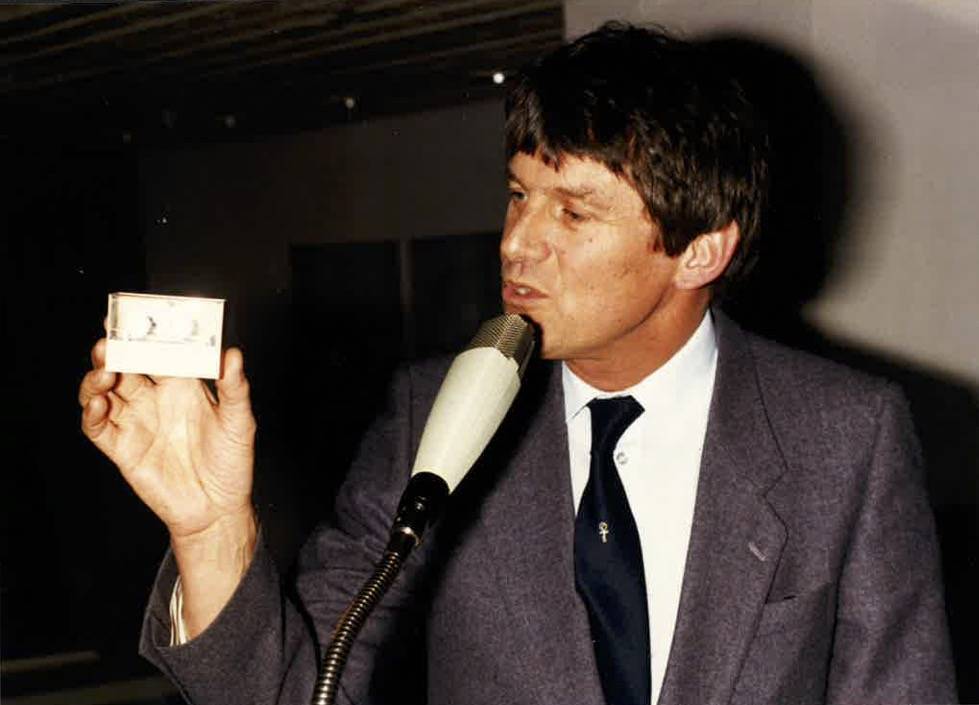HEBI foundation
HEBI is the acronym for Hemel Baby Incubator. The incubator is named after Dr. Oscar Van Hemel PhD. At the beginning of the 70s Dr. Oscar Van Hemel PhD was working at the Onze Lieve Vrouwe Gasthuis (OLVG) in Amsterdam. He was working on his doctoral research. Together with Ton Amende, deputy head of the technical department, Dr Van Hemel was also developing an incubator for premature babies. Dr. Van Hemel visiting Ton Amende many times for brainstorming about a portable incubator. Ton Amende invented an ingenious kit and one of his colleagues made the heater and the humidifier. They often worked together in the hospital to make all kind of parts for the incubator and to make this all ready to ship. In the meanwhile, Amende’s wife (also working in the same hospital) was sewing the sleeves!

In February 1987 Amende celebrated his 40 year working anniversary in the OLVG. As a gift he received a miniature incubator as a symbol for going together to Africa to experience the utility of the incubators. They visited several hospitals in Kenia and Uganda where the incubators were in use.
Since the year 1970 Dr. Oscar Van Hemel also worked together with co-promoter Dr. Henk Voorhoeve, specialist in tropical pediatrics. With the help of Dutch sponsors, this kit was manufactured on a non-profit basis. In mid 2006, his waning health necessitated Dr. Van Hemel to seek help of Kiwanis Club Rotterdam. Mr. René Stout, a sponsor of components of the incubators, pointed to the opportunities offered by service clubs. Kiwanis Club Rotterdam is a service club that initiates projects for aids to children. 'Serving the Children of the World' is the motto of the international service organization.
Kiwanis project
HEBI Foundation has now become one of the projects of Kiwanis Rotterdam. With this project, all goals of Kiwanis come together: not by donating money to the project, but by using the expertise and the social network of the Kiwanis members, a platform has been created to continue the lifesaving work of Dr. Oscar Van Hemel. On October 23, 2006, the document of foundation was executed by Mr. Remus Dovianus, notary public in Dordrecht.

Our goal
The objective of the HEBI Foundation is the production of baby incubators and other simple but durable medical equipment that are suitable for developing countries. This will also guarantee the continuation of Dr. Oscar Van Hemel’s life work. At the time that Kiwanis Club Rotterdam agreed to adopt the HEBI project, it was assumed that the project would only comprise the production and transport of an incubator. In fact, Dr. Van Hemel had run this project all by himself in the past 25 years.
Ambitious project
However, the execution of the project was not that easy as expected: drawings were missing and parts were not available in regular shops. Little by little, it became obvious that the simple looking incubator was an innovative and smart product. The preparation demanded a lot of work. Suppliers of various parts had to be contacted with the request to supply materials against a considerably reduced price. The incubator includes about 80 components. They had to be custom made, wooden parts had to be sawn according to specifications. Next, all components had to be smartly packed in a wooden chest for shipment.
Everything such as transport, storage and evaluation of requests from individual countries, that have a prosperity level much lower than in the Netherlands, had to be coordinated. The incubators manufactured by the HEBI Foundation get all a unique number to serve a simple tracking and tracing system. This enables the foundation to trace a specific incubator used in Africa and by whom it is sponsored.
Transport to remote residential areas in Africa is a real challenge. What is the exact location and how do we arrange the logistics for the incubator. Fortunately, we can use the expertise of an experienced logistics company that was found by Dr. Van Hemel. However, the HEBI incubator has three main disadvantages: it is too heavy, the heating is generated by light bulbs and the design is not state-of-the-art.